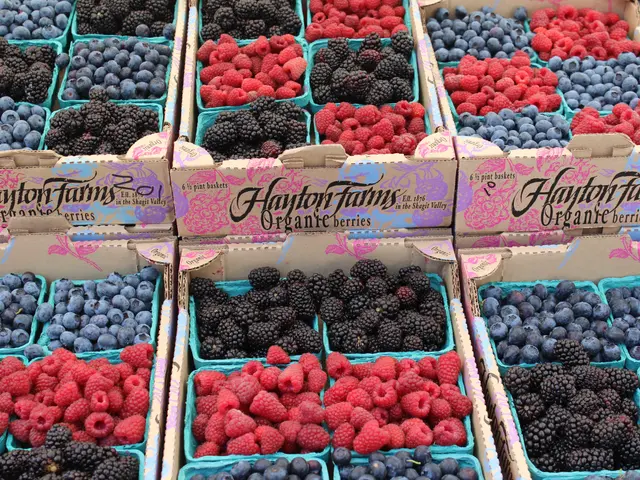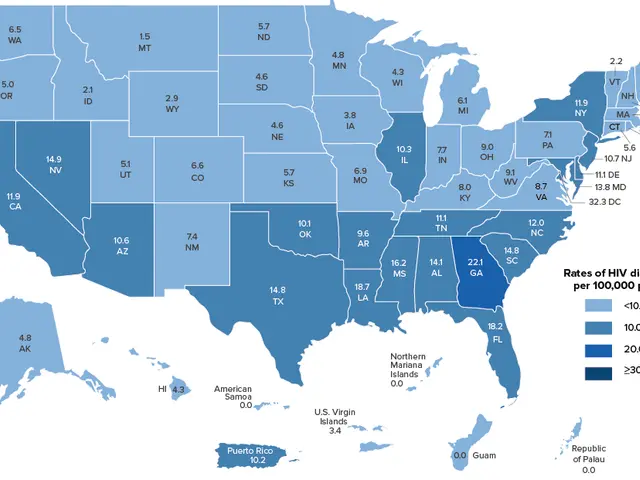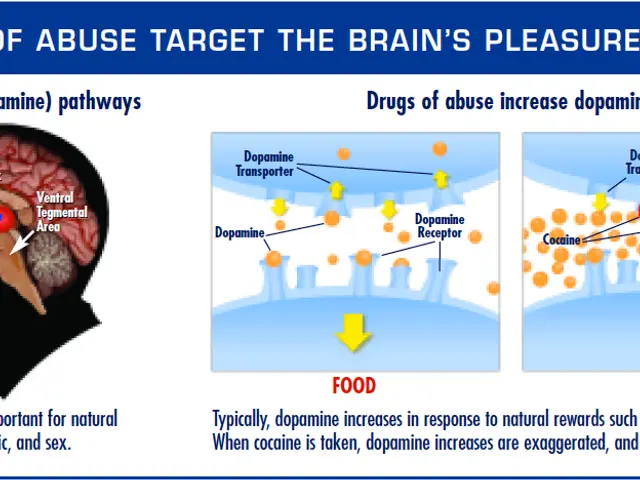Weight Loss Through Veganism: Evaluating Efficiency and Suggesting Notable Food Choices
A growing number of individuals are turning to vegan diets for various reasons, including weight loss and improved health. Here's what you need to know about incorporating a vegan diet into your weight loss journey.
Eating healthy-fat vegan foods like avocados can help vegans stay full longer and may reduce the risk of cardiovascular disease. However, it's important to remember that replacing meat or dairy products with high-calorie processed foods can lead to weight gain.
A well-planned vegan diet, rich in whole, plant-based foods, can be a powerful tool for weight loss. Foods such as leafy greens, berries, legumes (lentils, chickpeas, beans, peas, soy), and whole grains like quinoa and millet are low in calories and reduce dietary acid load, which has been linked to lower inflammation and weight loss.
For a low-carb vegan approach, nuts, seeds, and nut butters like hemp seeds, sacha inchi seeds, almonds, and tahini can provide protein with acceptable carb levels. Most above-ground vegetables are also low in net carbs and support weight loss while maintaining nutrient intake.
However, some vegan foods that appear healthy but are high in calories can hinder weight loss if consumed excessively. These include nut butters, avocados, coconut milk, trail mix, vegan baked goods, and plant-based cheeses made with calorie-dense ingredients. It's crucial to consume these foods in moderation to avoid excess calorie intake.
When it comes to weight loss tips for vegans, prioritizing low-fat, whole plant foods is key. Be cautious with calorie-dense vegan products, and monitor portion sizes and ingredient labels to avoid hidden calories. Consider a low-carb vegan plan focusing on nuts, seeds, and low-carb vegetables if that aligns with your goals.
A vegan diet can be very healthy but carries risks for certain nutrient deficiencies if not carefully planned. These include vitamin B12, vitamin D, iron, calcium, omega-3 fatty acids, and protein. It's essential to ensure you get adequate protein, iron, and vitamin B-12, and you may wish to speak to a doctor or nutritionist first.
Soy, quinoa, and tempeh are vegan sources of protein. Nuts and seeds are high in omega-3 fatty acids. Soy and almond milks are rich in vitamin D. Vegans need to find alternative sources of vitamin B-12, such as fortified cereals, fortified plant milk, nutritional yeast, some meat substitutes, and supplements.
Being mindful of oils and seasonings, relying less on processed foods, and increasing physical activity can aid weight loss on a vegan diet. Eating smaller, more frequent meals throughout the day can promote metabolism and prevent overeating.
In summary, a vegan diet can promote weight loss effectively by emphasizing whole, low-fat, and alkalizing plant foods while being mindful of calorie-dense vegan products. Attention to potential nutritional gaps, especially vitamin B12, vitamin D, iron, calcium, omega-3s, and protein, is important for maintaining health on a vegan diet.
- Besides avocados, a well-planned vegan diet with whole, plant-based foods like leafy greens, berries, legumes, and whole grains can help in weight loss.
- Consuming nuts, seeds, and nut butters in moderation can provide protein with acceptable carb levels, supporting weight loss on a low-carb vegan approach.
- Some vegan foods that appear healthy but are high in calories, such as nut butters, avocados, and vegan baked goods, can hinder weight loss if consumed excessively.
- To maintain health on a vegan diet, it's essential to ensure sufficient protein, iron, and vitamin B-12 intake, and you may consider speaking to a doctor or nutritionist first.
- Eating smaller, more frequent meals throughout the day, being mindful of oils and seasonings, relying less on processed foods, and increasing physical activity can aid weight loss on a vegan diet.







